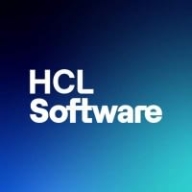

HCL AppScan and OpenText Dynamic Application Security Testing are prominent tools in the application security testing category. HCL AppScan tends to have the upper hand due to its ease of use and extensive integration with development processes.
Features: HCL AppScan shines in detecting vulnerabilities like XSS and SQL injection with a low false-positive rate. It supports multiple languages, custom rules, and rapid API scanning, enhancing its usability. OpenText Dynamic Application Security Testing offers robust scanning capabilities but struggles with integration.
Room for Improvement: HCL AppScan needs improvement in false positive reduction and better integration with CI/CD pipelines and cloud services like Microsoft's Azure. It also requires enhanced user support and interface refinements. For OpenText Dynamic Application Security Testing, there is a need for faster scans and improved pricing transparency. Both tools need improved support for mobile and cloud applications and continuous updates to handle new vulnerabilities.
Ease of Deployment and Customer Service: HCL AppScan provides flexible deployment options, including on-premises and cloud solutions, but has faced issues with slow customer service after transitioning from IBM. OpenText Dynamic Application Security Testing also offers diverse deployment models and is noted for its responsive technical support.
Pricing and ROI: HCL AppScan is perceived as expensive but offers a significant ROI due to comprehensive features leading to vulnerability reduction and cost savings. OpenText Dynamic Application Security Testing is considered costly and faces challenges with pricing due to bundled licenses, making it less accessible for smaller enterprises.
| Product | Market Share (%) |
|---|---|
| HCL AppScan | 11.5% |
| OpenText Dynamic Application Security Testing | 11.3% |
| Other | 77.2% |


| Company Size | Count |
|---|---|
| Small Business | 13 |
| Midsize Enterprise | 6 |
| Large Enterprise | 31 |
| Company Size | Count |
|---|---|
| Small Business | 7 |
| Midsize Enterprise | 1 |
| Large Enterprise | 15 |
IBM Security AppScan enhances web application security and mobile application security, improves application security program management and strengthens regulatory compliance. By scanning your web and mobile applications prior to deployment, AppScan enables you to identify security vulnerabilities and generate reports and fix recommendations.
OpenText Dynamic Application Security Testing offers robust scalability, ease of use, and high accuracy in scanning, making it a valuable tool for enterprises.
This security testing platform is known for its centralized dashboard, guided scans, and comprehensive reporting. It integrates seamlessly with tools like Fortify code scanner and supports extensive vulnerability detection and analysis, enhancing efficiency in security management. Despite its strengths, users suggest improvements in cloud integration, cost-effectiveness, and installation processes. Faster scans, reduced false positives, and improved mobile testing features are also desired.
What are the key features of OpenText Dynamic Application Security Testing?In industries like BFSI, OpenText Dynamic Application Security Testing is employed for performance network application testing, dynamic and static application security testing, and code checks. Security and QA teams use it in development processes to ensure application security prior to release, proving integral in both enterprise and testing environments.
We monitor all Dynamic Application Security Testing (DAST) reviews to prevent fraudulent reviews and keep review quality high. We do not post reviews by company employees or direct competitors. We validate each review for authenticity via cross-reference with LinkedIn, and personal follow-up with the reviewer when necessary.